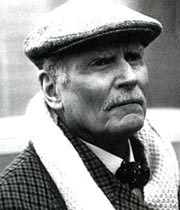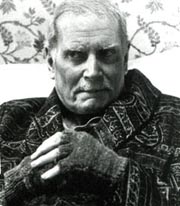THE
PRODUCTION
Evelyn
Waugh's popular 1945 novel had eluded previous efforts to bring it
to the motion-picture screen. In the year of its publication, Waugh
failed to reach an agreement with MGM, and five years later another
deal that would have had Graham Greene as scriptwriter fell through
for lack of financing.
In
1977, Granada-TV acquired the rights to the book, with  the
idea of making it a five-part series; it was John Mortimer's eventual
adaptation that extended the production to eleven episodes. At a cost
of $9. 9 million, the most expensive British television project up
to that time, Brideshead Revisited took four years to reach home screens
in the U.K. Filming began in Malta in May 1979, under the direction
of Michael Lindsay-Hogg, but was brought to a halt in August, due
to an ITV strike. It resumed that October, but Lindsay- Hogg was forced
to leave because of other commitments, and Charles Sturridge, a young
Waugh specialist, took his place for the remainder of the production,
which included locations in Venice, the island of Gozo, and such British
locations as Tatton Park in Cheshire and -- at Oxford University --
Herdord College, Wadham College, and Christ Church. And, of course,
the
idea of making it a five-part series; it was John Mortimer's eventual
adaptation that extended the production to eleven episodes. At a cost
of $9. 9 million, the most expensive British television project up
to that time, Brideshead Revisited took four years to reach home screens
in the U.K. Filming began in Malta in May 1979, under the direction
of Michael Lindsay-Hogg, but was brought to a halt in August, due
to an ITV strike. It resumed that October, but Lindsay- Hogg was forced
to leave because of other commitments, and Charles Sturridge, a young
Waugh specialist, took his place for the remainder of the production,
which included locations in Venice, the island of Gozo, and such British
locations as Tatton Park in Cheshire and -- at Oxford University --
Herdord College, Wadham College, and Christ Church. And, of course,
 standing
in for the mythical estate Waugh called Brideshead, is the magnificent
Castle Howard in Yorkshire.
standing
in for the mythical estate Waugh called Brideshead, is the magnificent
Castle Howard in Yorkshire.
Brideshead
Revisited, told in flashback form, follows the wealthy and aristocratic
Marchmain family of English Catholics from the early 1920s to the
close of World War II. It's all recalled through the personage of
Charles Ryder (Jeremy Irons), a Protestant school friend of the family's
youngest son, the charming but self-destructive Lord Sebastian Flyte
(Anthony Andrews).
A tremendous success, of both critical and popular proportions, on
both sides of the Atlantic (the series reached U.S. audiences beginning
in january 1982), Brideshead Revisited won an American Emmy for
Laurence Olivier's "guest star" appearance in two substantial segments
of the mini-series as Lord Marchmain for "Outstanding Supporting Actor
in a Limited Series or Special."
Already
in his early seventies at the time, Olivier had to range from a man
in his late fifties to his middle seventies--and a memorable death
scene. Equally deserving of awards were Anthony Andrews as the profligate
Sebastian, and Claire Bloom as his coolly self-contained mother, Lady
Marchmain.
Information
and pictures from The Complete Films of Laurence Olivier - Jerry Vermilye